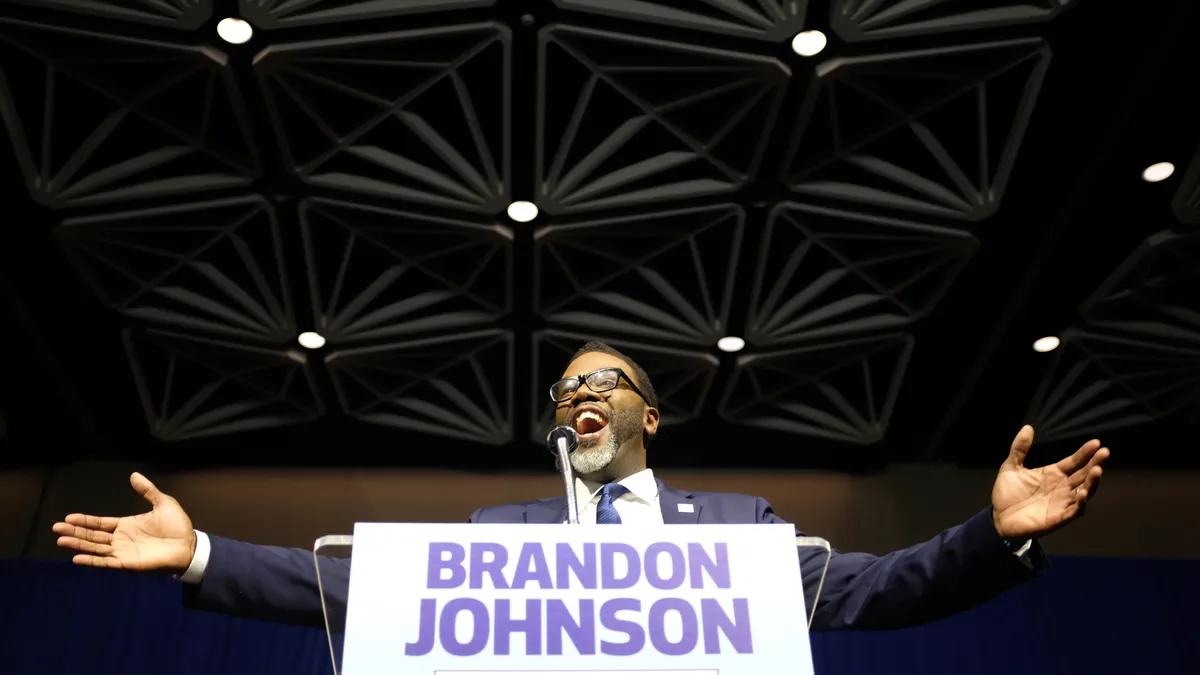Dive Brief:
- The Chicago City Council passed a law Friday eliminating the tip credit incrementally by July 2028 in a 36-to-10 vote.
- The law would set the maximum tip credit at 40% of the city’s minimum wage on July 1, 2024, and decreases the allowable tip credit 8% every year.
- The ordinance was a slight compromise from an initial proposal, which would have eliminated the tip credit by 2025 and was replaced by the stepped elimination after Mayor Brandon Johnson and the Illinois Restaurant Association reached an agreement in mid-September, when it became clear that the industry’s preferred bill would not pass.
Dive Insight:
Chicago Alder Timmy Knudsen cited the compromise between Johnson and the IRA as the factor moving him to back the stepped elimination. Knudsen said in his remarks during the vote that the council would’ve been able to pass the 2025 elimination without compromise, and said the stepped elimination showed the city was committed to working with businesses.
Backers of the bill, including alders, workers and some business owners, said the bill would provide financial stability and improve outcomes for historically marginalized people, including women and black workers employed in the restaurant industry.
“I believe in a fair day’s pay for a fair day’s work,” Alder Desmon Yancy said in testimony in support of the bill.
Alder Nicholas Sposato, speaking in opposition, described the bill as a “job killer,” to which the IRA acquiesced as a result of political realism.
The IRA said the bill, while unfortunate, was a realistic compromise.
“We wholeheartedly disagree with the decision to move forward with the elimination of the tip credit,” the IRA said in a statement emailed to Restaurant Dive. “The amended 5-year phase-in plan is a compromise we can accept and represents a middle ground between what our members want and the City’s legislative priorities.”
The political situation in Chicago, where Johnson was elected on a platform that included the elimination of the tipped minimum wage, somewhat resembled the political landscape in California ahead of the AB 1228 compromise this September. In both instances, proponents of labor law reform likely had the political capacity to implement changes the restaurant industry opposed — the now-canceled 2025 tip credit elimination in Chicago and the revival of the Industrial Welfare Commission in California — but reached a negotiated compromise with industry groups.
One Fair Wage supporters at the meeting testified that they hoped the law in Chicago would serve to move other jurisdictions to join Alaska, California, Minnesota, Montana, Nevada and Oregon in eliminating the tip credit. Washington, D.C., is in the process of eliminating the subminimum wage for tipped workers. Some restaurants have added service charges that are controlled by employers in contrast to tips, which by law must go to workers.












